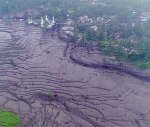You are here
Teachers say removing 'Stats and Probability' unit from Tawjihi exam not helpful
By Renad Aljadid - Mar 15,2018 - Last updated at Mar 15,2018
AMMAN — The Ministry of Education on Tuesday announced excluding the "Statistics and Probability" unit from the Tawjihi Maths exam for the academic year 2017/2018, drawing mixed reactions among educators and students.
Following the ministry's General Examination Council decision to allocate the "Statistics and Probability" subject as a "self-study" unit for students in the 2017/2018 scientific and industrial streams, teachers and students expressed their concerns over the unexpected move.
"The Tawjihi year should prepare students for their university study, and almost all science majors require studying statistics and probability, so, without studying them comprehensively at school, students may struggle later," said Omar Masa‘sah, a Math teacher at Modern Systems Schools.
"Most students in Jordan give their highest priority only to the topics covered in the Tawjihi exam, so, even if an introduction about statistics and probability is taught in the math curricula of the 10th and 11th grades, students won't pay attention to it," he claimed.
"Reducing the material was certainly needed because the previous curricular was huge and the time limited, but the question is whether cancelling the whole section was the correct decision," said Wesam Qadi, a Math teacher at Omareyah Schools, suggesting that "there are some important lessons in the unit that could have been exempted from the cancellation".
Tawjihi student Ibrahim Jaitan said: "My classmates and I were very happy about the decision, which will save us time and effort. We can now focus on studying the remaining material and allocate more time for the other courses."
Asked about his impression on the "self-study" units, Jaitan said that "there is neither time nor motivation for studying the self-study units. We can barely cover the material we are required to. Our aim is mostly to achieve high results in the exam while studying extra material might be a priority later".
"The cancellation goes against the students' benefit because this material is important and easy. It would have created a better chance for students to achieve better results in the exam, especially on the questions allocated for this section," a public school Math teacher, who preferred to remain anonymous, explained.
Prior to the decision, the math curricula included three units covering calculus, conic section, and statistics and probability.
"The 150 marks used to be distributed between three different topics. Having only two may affect students negatively because questions will be allocated higher marks and every mistake will entail losing more marks than before," Qadi said.
The type of questions will also change, according to Masa‘sah, who explained that "since there will be fewer topics, the variety of questions will decrease and their difficulty will increase".
"Examiners will either make questions deeper and more precise, which will be more confusing for the students; or the ideas will be repeated and asked about more than once, which will also put students at risk of losing more marks in case they did not understand this particular idea," he added.
Math teachers recommended increasing the number of questions as well as the time of the exam in order to mitigate the consequences of the cancellation.
Related Articles
AMMAN — An MP on Sunday sent a memo to Education Minister Mohammad Thneibat complaining about the maths exam for the scientific stream in th
The first day of the General Secondary Certificate Examination (Tawjihi) winter session went "smoothly and as planned", officials at the ministries of education and interior said Saturday.
AMMAN — The unified Education Ministry exams planned for sixth and ninth graders will not be similar to the General Secondary Certific














